Larian Studios, the crazy Belgian video gaming story
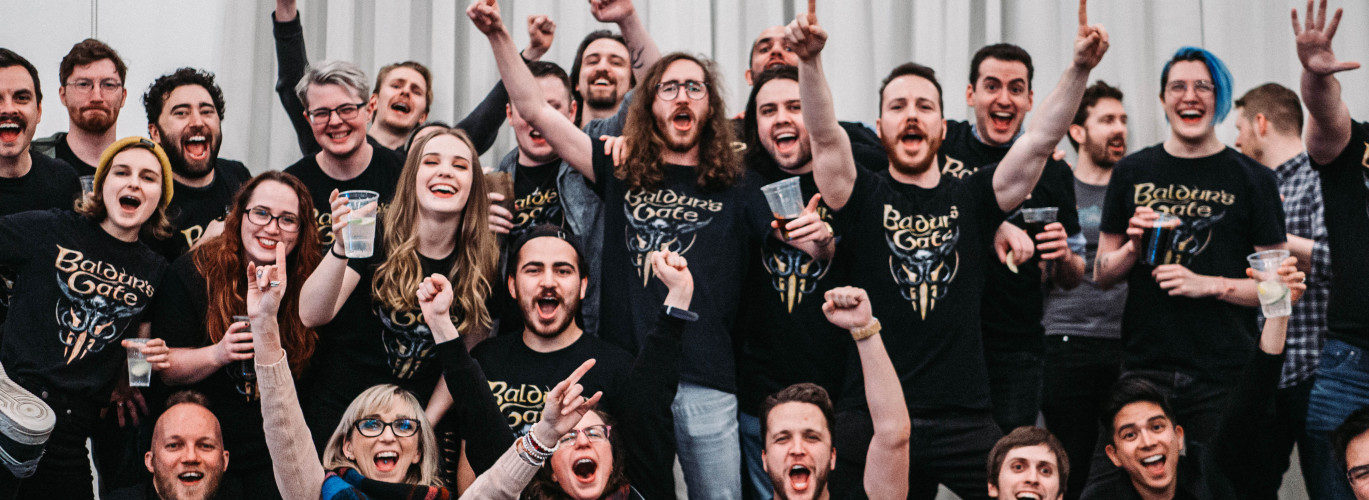
Article author :
‘Baldur’s Gate 3.’ This name is currently on the lips of every gamer. Barely just released, the third opus of one of the video gaming world’s best-known licences is literally crushing everything in its path. Behind this incredible success story is a Belgian studio, transformed from a tiny Oudenaarde-based workshop into an international behemoth.
With a budget weighing in at several tens of millions of Euros, a 400-strong team to develop it, 6 years of gestation, but above all, 472,136 players connected to the game on the day it came out! For its launch, one might say that ‘Baldur’s Gate 3’ has performed remarkably, outstandingly even. The surge of people interested quite simply crashed the Steam platform which hosts the game.
It has to be said that the Larian Studios project had been long awaited. The 2nd episode, eagerly anticipated by fans of the ‘Baldur’s Gate’ franchise– ‘Baldur’s Gate 2: Shadows of Amn’ – came out … 23 years ago. Available already as an advance version for three years, bursting with promises, omnipresent on all the social networks and a regular viral content creator, the role-playing game based on the rules of ‘Dungeons & Dragons’ seems to be keeping its word regarding what it had vowed would be on offer.
Baldur’s Gate 3 in a few words
But before looking more closely at the incredible destiny of the Belgians who came up with the idea, let us talk a little about the game itself. It is an RPG (Role-Playing Game) whose setting is a ‘heroic-fantasy’ world. Its great strength: allowing players to incarnate a hero or heroine who can be totally personalised and do everything, or as good as, within the vast world available in ‘BG3.’
Some examples? You can oversee all the life choices of your ludic alter ego, turn it into a valiant knight, the defender of widows and orphans, or alternatively transform it into a bloodthirsty psychopath, swearing allegiance to the forces of evil depicted in the game.
You can play on your own, in a network with your friends or even on a split screen. The story which will be narrated for you is absolutely gargantuan and adapted to nearly every situation you might imagine. In addition to the main narrative arc, you can forge very deep relationships between the characters, and even have them experience totally crazy romances…
In short, the promises made have been huge, and the feedback generated to date confirms that the final product meets all expectations.
Swen Vincke, passion as a driving force
But the road to complete such a colossal, highly publicised and eagerly awaited project has been a long one. And it began with a Belgian named Swen Vicke. Born in 1972, in La Panne, the son of the restaurateurs of a small establishment on the coast, Swen became a huge fan of video games, programming and role-playing at a very early age. His passion for these subjects was such that he developed his own first embryonic video game whilst he was still at school.
A computer sciences graduate, he nevertheless doesn’t merely want to create the code for the games he intends to produce. What interests him is being involved in everything, from conception to supervision, from gameplay to narration.
It was with an atypical approach that he created Larian Studios in 1996, the name being taken from his dog at the time, Larre – yes, yes, a true story. He is in particular very engaged with players and the gaming community. He regularly attends live action role-playing games in disguise, gets involved in discussion forums and other networking platforms to listen and respond to comments made by those who are playing his products, and includes their suggestions in his new endeavours.
Thinking of a career change pic.twitter.com/vnGMRL8Wlt
— Swen Vincke @where? (@LarAtLarian) August 1, 2018
What are the odds. Bumped into @BlondeNerd at random airport and she’s not wearing her Larian shirt pic.twitter.com/nsNZe6eV1f
— Swen Vincke @where? (@LarAtLarian) May 24, 2019
Larian Studios in troubled waters…
The history of Larian Studios is anything but a walk in the park. The studio’s first project – ‘The Lady, the Mage and the Knight’ – never even reached the final stage, having failed to convince publishers to invest money in it.
To prove the abilities of the small team he had established, he next released another game called ‘LEDwars’ within five months. This time the project did reach maturity, but was only a very relative commercial success.
Over the following years, Larian Studios verged on bankruptcy several times. Each day was a challenge and Swen Vincke tried as best he could to keep the studio afloat by working on small projects, in particular games for casino sites.
In 2002, he released his first major project: ‘Divine Divinity’. The game, despite a shaky start, sold well and was a commercial success. But Vincke and his team forgot one key detail, as he explains in an interview for PC Gamer: ‘We were so excited about signing with the publisher that we didn’t really pay attention to the contract. It was a standard contract back in the day, but if you didn’t sell millions of your game under the royalties model it was very hard to earn any money out of it. Divine Divinity made us almost nothing.’
The outcome being that it was hard to make ends meet at the end of each month. Larian Studios therefore turned to other more ‘pay the bills’ missions, such as games for children for the Flemish television channel Ketnet, and got started on the sequel to ‘Divine Divinity,’ which came out in 2009. Hopes were high, especially after signing with a large publisher, which allowed the Belgians to believe that they could fulfil all of the ambitions they had in mind.
But in the end they became disillusioned, because, under pressure from their financial backers, Divinity 2 was released in a rushed manner, shorn of numerous features Vincke was particularly keen on, and riddled with bugs. Despite that, it performed satisfactorily … although not well enough to place the studio in the clear, financially.
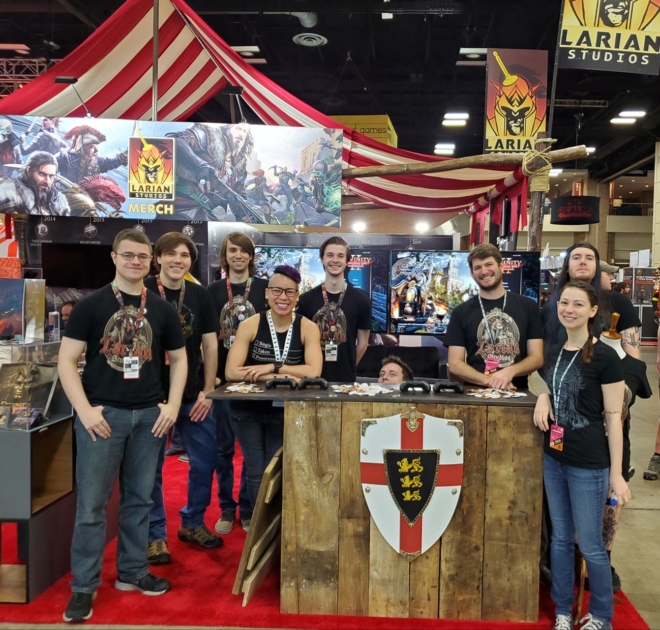

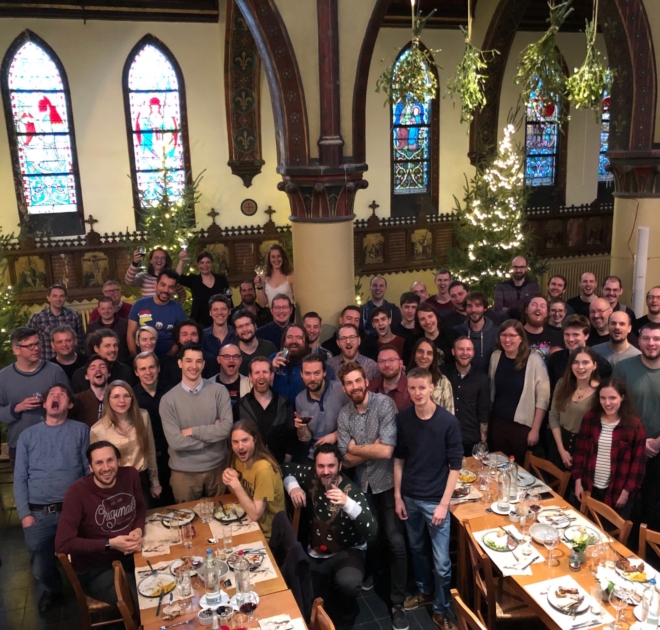
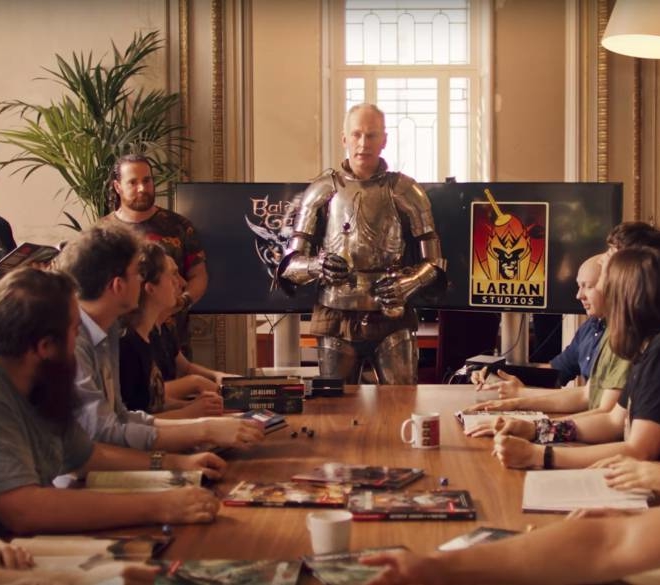
And then there was light…
In 2014, after yet more difficult years spent trying to find the resources to somehow keep going, Larian Studios staked everything on a risky roll of the dice. All of the budget and all of the energies of those involved were pumped into this – who could say? – last project. Swen Vincke was worn out from constantly trying without ever really succeeding. For him it would be either the vindication or the death of the studio.
‘Divinity – Original Sin’ includes all of the features he had always dreamed of seeing in a role-playing game and the studio decided to self-publish, by in particular implementing a participatory fundraising campaign. And it paid off. In scarcely a handful of months after its release in 2014, 500,000 copies were sold. The success, both commercially and in terms of media coverage, was enormous, and the studio could finally breathe financially.
As a result of this breakout triumph, Larian Studios opened branches in Quebec, Dublin, Kuala Lumpur, Guildford and Barcelona. The goal was to have several teams working across different time zones so that future projects could be even more ambitious.
The recipe for success had unquestionably been discovered: ‘Divinity: Original Sin 2’ was released in 2017, and easily surpassed its predecessor in terms of sales. Larian Studios went from being a Belgian company struggling to survive to becoming THE global standard in terms of old-school RPGs.
Independence, whatever it costs
It was in these circumstances that ‘Wizards of the Coast,’ the holders of the ‘Baldur’s Gate’ licence, contacted Larian Studios for the 3rd opus of the series. This same group which, a few years previously, hadn’t even replied to Vincke when he had suggested his studio for the same project.
After it had received two pitch versions of the game, the American group gave the green light and almost total freedom to the Belgian studio. There followed six years of development and the thunderous launch we have recently experienced.
And inevitably, such a success story attracts attention. According to some indiscrete chatter in the sector, several major operators would like to purchase the Belgian studio. But Swen Vincke is a free spirit and there is no question of him shifting his position after these successes. He wants to maintain a tight rein over the creative choices of the studio’s next projects, and no way will he sell off his ideas cheaply when potential buyers wave their money at him. And given the outcome, he has plenty to be happy about!
A story, projects or an idea to share?
Suggest your content on kingkong.
also discover
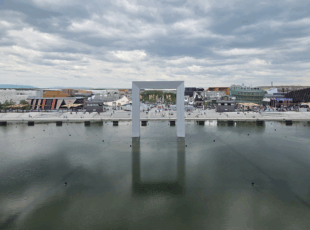
From Belgium to Japan, the new territories of creative digital creativity
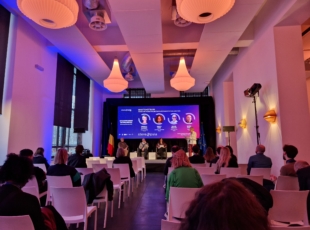
Stereopsia, the key European immersive technologies hub

NUMIX LAB 2024: creating bonds and building the future of digital creativity


